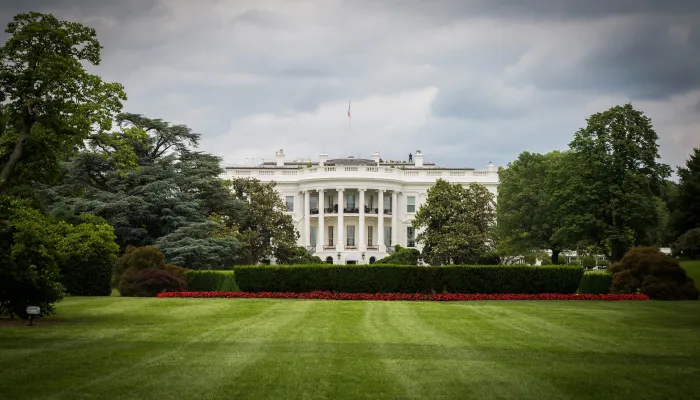Panetta Recommends Budget Reform to JSC
Committee for a Responsible Federal Budget co-chair Leon Panetta testified before the Joint Select Committee on Budget and Appropriations Process Reform (JSC) last week at a hearing entitled "Opportunities to Improve the Appropriations Process." Testifying with former Chairman of the House Appropriations Committee David Obey, Panetta stressed how the breakdown of bipartisanship and regular order has worsened deficits and is leading to Congress governing by crisis.
The JSC, co-chaired by Representatives Steve Womack (R-AR) and Nita Lowey (D-NY), sought Panetta's input for its charge to report legislation to improve the budget process – due by November 30 this year. This was the fifth public hearing by the committee; previous hearings have looked at current challenges in the budget and appropriations process or discussed suggestions for improvement. Womack announced informal member working sessions are expected to begin this month to draft the JSC's recommendations.
In his opening statement, Womack said the budget process needs to be neutral to the party in power and designed with the future needs of Congress in mind. He stressed any set of reforms cannot be made if they are intended to benefit one party over the other. In her opening statement, Lowey underscored the role that polarization and partisanship have played in budgetary dysfunction. She highlighted the 50 amendments proposed on the recent Labor-HHS appropriations bill as an example of partisanship driving the process.
In his testimony, Panetta surveyed the history of the budget process, how it worked in the past, and why the current process is broken. He said a willingness to work with ranking members on legislation was the norm and it allowed the process to function. The breakdown of bipartisanship and regular order has worsened fiscal outcomes. He noted the budget process is tough to do even when working together and gets much harder when trying to pass a budget along party lines. Panetta emphasized that crisis now drives the agenda more than leadership – leading to poor outcomes and kicking the can down the road.
Panetta presented several recommendations to improve the budget process:
- Implement biennial budgeting
- Have earlier and more frequent communication between the President and Congress in the budgetary process
- Shift to a calendar year budget from the current federal fiscal year
- Prohibit consideration of legislation with fiscal impact if no budget resolution is adopted and return to the Gephardt Rule
- Get rid of budget gimmicks like rosy scenarios, magic asterisks, timing shifts, etc.
- Enforce PAYGO and set a higher Senate vote threshold to waive it
- Require a common baseline between the Congressional Budget Office and Office of Management and Budget
- Place controls on discretionary emergency spending
- Establish controls for mandatory spending and tax expenditures
- Prevent reconciliation from being used to increase debt and restore the Conrad Rule
- Require budgets to cover a ten-year window instead of five
Panetta noted the ideal way to accomplish reform would be in a comprehensive budget deal. Recognizing the significant political hurdles to passing a comprehensive package, he suggested the JSC recommend key changes that reflected a spirit of bipartisanship instead. He stressed budget reform should address the fiscal health of the nation and the growing debt-to-GDP ratio facing policymakers.
In his testimony, Obey emphasized the main challenge to the budgeting process is a political problem rather than a procedural one. His first recommendation was to abolish the budget committees and return to a pre-1974 style process with informal political negotiation. If budget committees were kept, he would require either the chairs of the Appropriations and Ways and Means committees be co-chairs of the budget committee or require the budget committee chair rotate between the two. Obey suggested redistricting and campaign finance reform are necessary to deal with the underlying political problems.
In the Q&A portion, Womack asked if budget reform is possible without discipline and bipartisanship. Panetta responded that both are necessary and go hand-in-hand. Partisanship has eroded the willingness to stick to the intent of the Budget Control Act, which requires setting priorities. He also noted tough, deficit reducing recommendations will go nowhere if leadership is not willing to support them. Obey agreed and added that Congress needs to work with commonly accepted numbers and not play with gimmicks.
Lowey asked Obey about his opposition to biennial appropriations. Obey warned that biennial appropriations takes away power from Congress and shifts it to the executive branch, but Panetta did not share the same reservations.
Lowey also asked how Panetta and Obey would minimize the number of policy riders on budget bills. Obey said attachments should be forbidden from must-pass bills. Panetta said Members of Congress will continue to introduce policy riders if leadership continues to bypass the committee process.
Senator Michael Bennet (D-CO) asked what political conditions are necessary to address the debt. Panetta said he believes partisanship makes the task much harder but a return to stronger committee chairs would help.
Senator Joni Ernst (R-IA) asked if Panetta and Obey supported punishments like withholding pay or banning recess if Congress does not pass a budget on time. Panetta said members will find a way to shortcut penalties and a better approach would be to prohibit passing legislation with fiscal impact before a budget and that the threshold to waive this rule in the Senate should exceed the current standard of 60 votes. Obey opposed the idea of punishments, saying a freshman member of the House should not be held responsible for the institutional failure of Congress to pass legislation.
Representative Derek Kilmer (D-WA) asked if they support a Fiscal State of the Nation address delivered by the head of the Government Accountability Office to Congress. Panetta thinks it is a good idea to have a summary report but said ultimately the responsibility to highlight fiscal health lies in the hands of the President.
Senator David Perdue (R-GA) pointed out that it is difficult to address budgetary issues without looking at both discretionary and mandatory spending. Panetta agreed and added that revenues also need to be considered for the budget committees to see the bigger picture.
Representative Rob Woodall (R-GA) asked what the panelists thought about the Joint Select Committee on Deficit Reduction founded in 2011, also called the Supercommittee, and if that process was a good way to make tough decisions to reduce the deficit. The Supercommittee had the authority to bypass the regular committee process and present deficit-reducing recommendations to be considered on the floor. Panetta recognized the difficulty in passing bills through the committee process but prefers it. Because it remains a challenge under regular order to strike a grand bargain to reduce deficits, Panetta suggested a Simpson-Bowles type commission could work. Obey opposes a Supercommittee process because he believes its members tend to be less informed.
*****
As Congress continues to revisit reforming the budget process, we stand ready to assist elected officials with design, implementation, and communication. Changing the budget process cannot replace the difficult decisions inherent in budgeting, but can improve the way decisions are made. CRFB has put forward many suggestions for possible budget process reforms through our Better Budget Process Initiative.
See the video of the testimony here:


